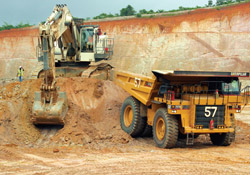Russia’s ongoing invasion of Ukraine was paramount in discussions at the just ended G-7 summit. The more than one year old war has, and is still dominating news waves and diplomatic meetings, with world leaders racing for a panacea to the incursion.
This has resulted in two outcomes; issuing aid (both military and humanitarian) to the embattled Ukraine and meting out punitive measures to Russia.
Though the war is in its fifteenth month, some countries such as India, China and South Africa have still remained hush in condemning it. Others like Syria have openly endorsed Moscow’s act.
On the first day of the G-7 summit, the leaders unleashed a new wave of sanctions against Russia, resulting in Russia’s current state of being the most sanctioned country.
Whilst the ICC has issued an arrest warrant for Vladimir Putin, Volodymyr Zelenskyy has quickened his steps to reach international leaders concerning his country’s plight and his plea for weaponry. Prior to making a stop at Hiroshima for the G-7 summit, the Ukrainian President was in attendance at the Arab League summit.
Also, Zelenskyy met on the sidelines of the summit with Indian Prime Minister, Narendra Modi. India has avoided outright condemnation of Russia’s invasion. It is also a major buyer of Russian arms and oil and has maintained that it would continue to buy Russian oil. Buying Russian oil could mitigate the impact of sanctions imposed on Russia.
Countries whose sympathies are with Russia are beginning to feel the heat of Zelenskyy’s relentless and passionate appeals. In that, countries which are in support of Ukraine are not backing down anytime soon. So far Western alliance support has not wavered. Leaders of the Group of Seven nations even noted in a statement, “Our support for Ukraine will not waver.”
This stance was echoed by U.S President Joe Biden as he announced his country’s 38th military package for Ukraine. Biden announced new military aid worth $375 million for Ukraine, saying the U.S. would provide ammunition and armored vehicles. That pledge came after the U.S. agreed to allow training on American-made F-16 fighter jets.
With the International Criminal Court arrest warrant on him, Russian President, Vladimir Putin’s prospects of traveling outside his country have been obscured, including travelling to countries that are regarded as Moscow’s allies. There is uncertainty over whether Putin can travel to South Africa for a summit of the BRICS nations of Brazil, Russia, India, China and South Africa in August.
South Africa, the host of the summit, is a signatory to the ICC and is obligated to comply with the arrest warrant on war crimes charges. It will be difficult, if not impossible for South Africa to carry out the arrest looking at its relations with Russia. This puts the African country in a tricky spot.
It is said that Russian allies have been helping the country to evade sanctions. Russia’s exports to China and India have increased since sanctions were imposed following the invasion of Ukraine, while those to Western countries and their allies Japan and South Korea have fallen sharply. The impact of sanctions on Russian fossil fuels such as the price cap on oil has been blunted by the surging exports to China and India.
Due to this, the G-7 has pledged to impose “severe costs” on other countries that evade or undermine the imposition of sanctions against Russia.





















